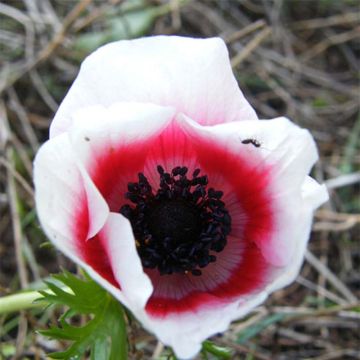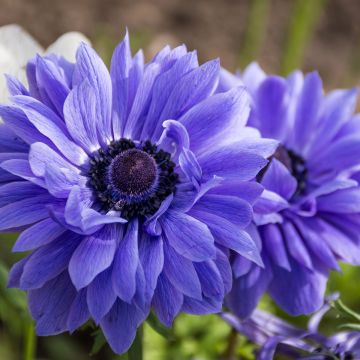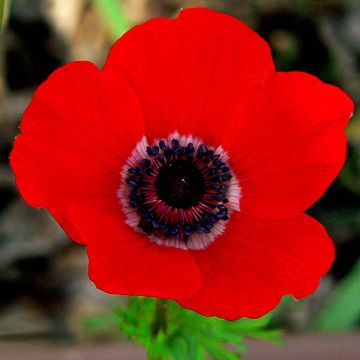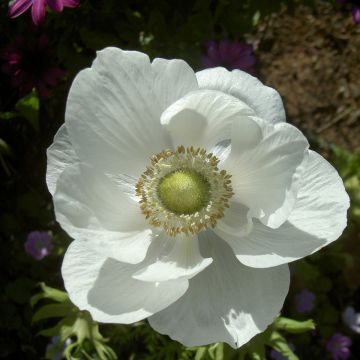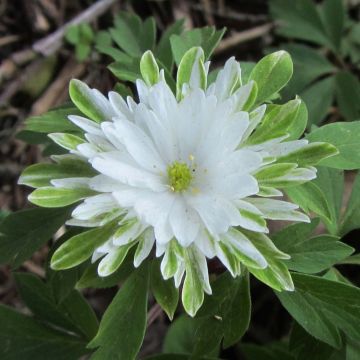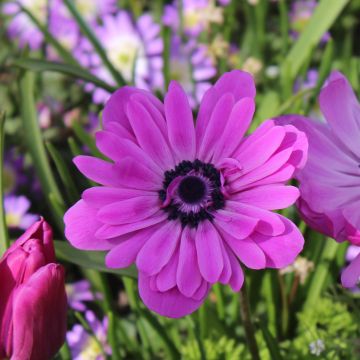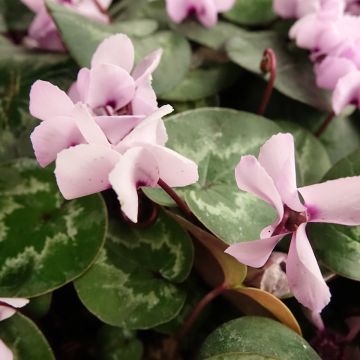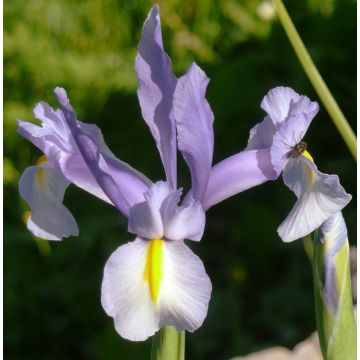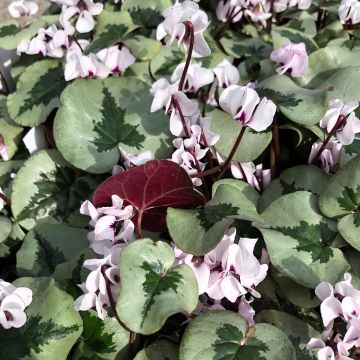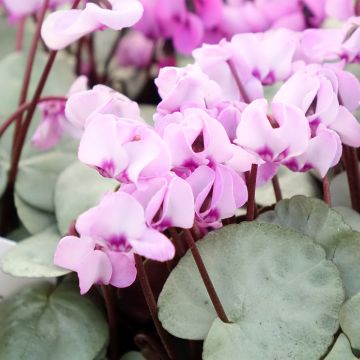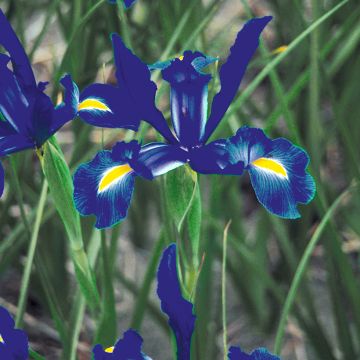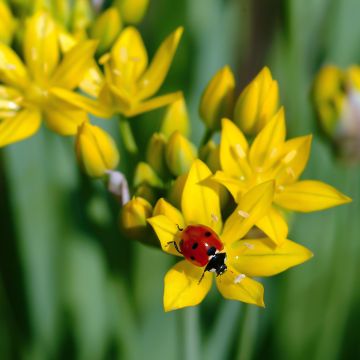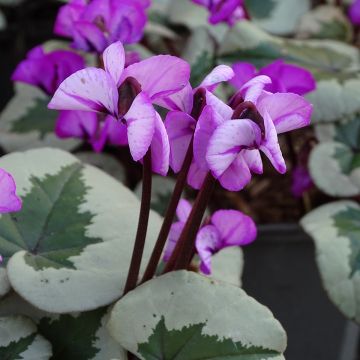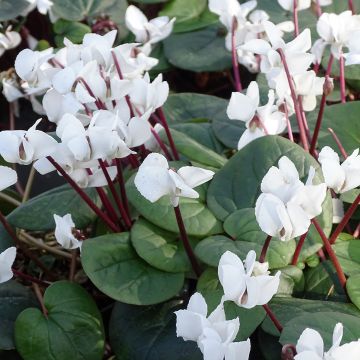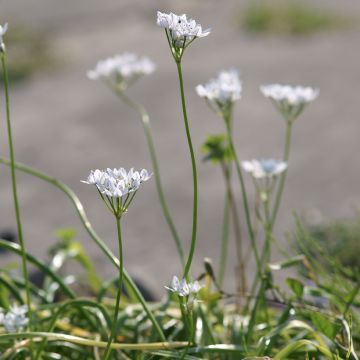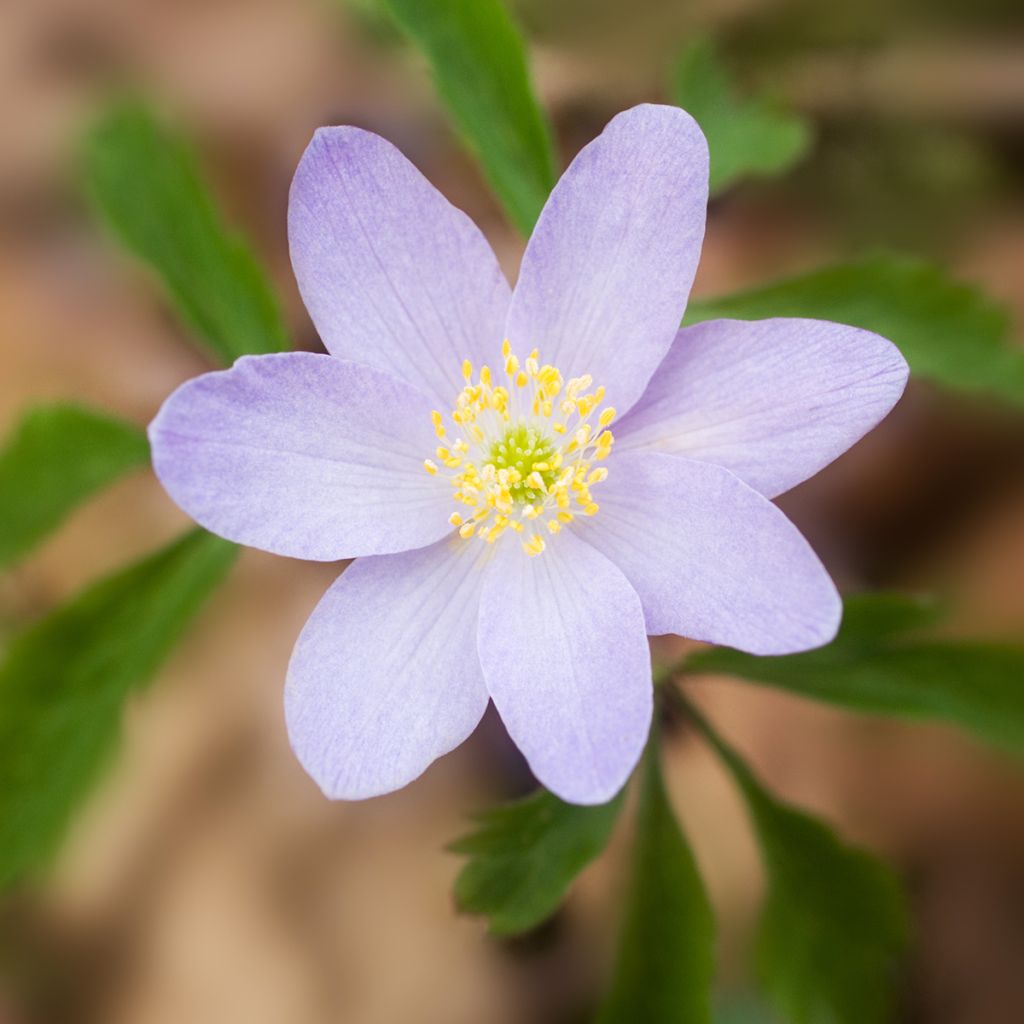

Anemone nemorosa Lucia
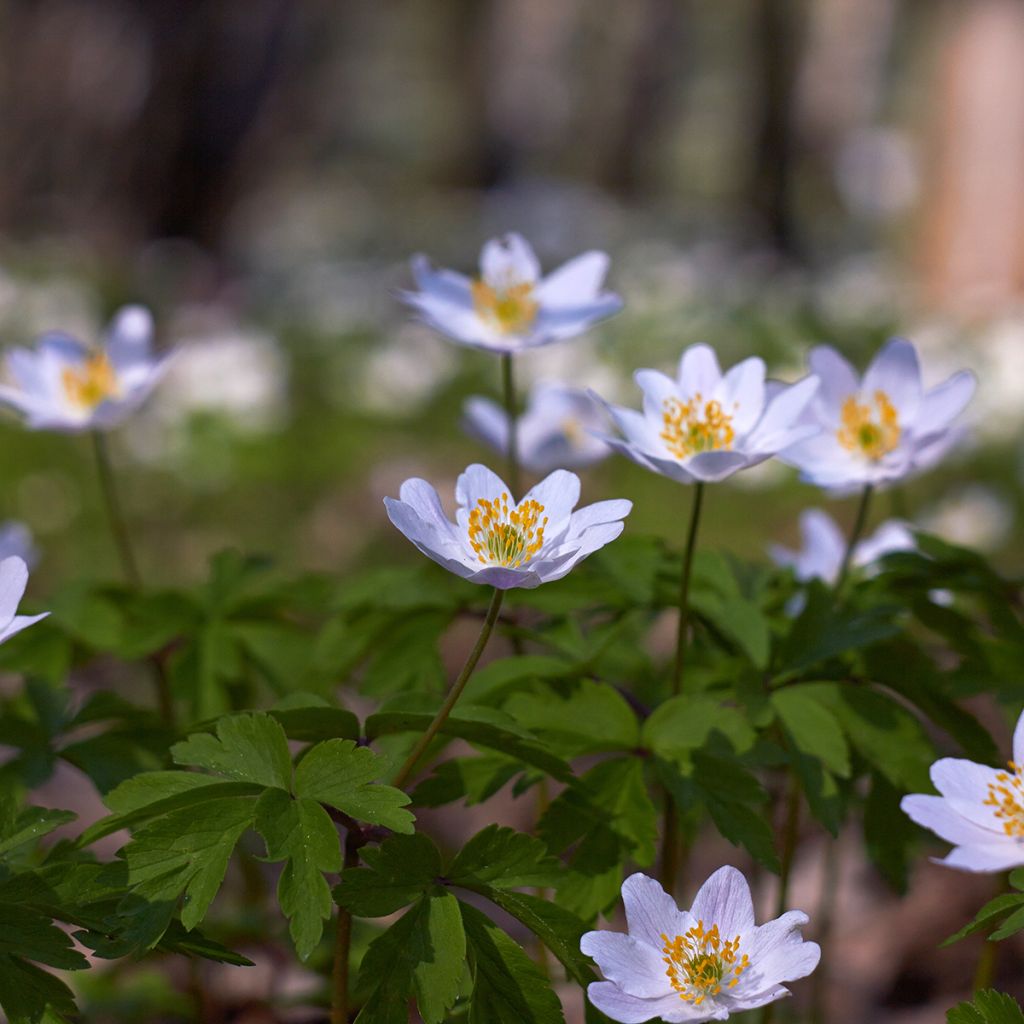

Anemone nemorosa Lucia
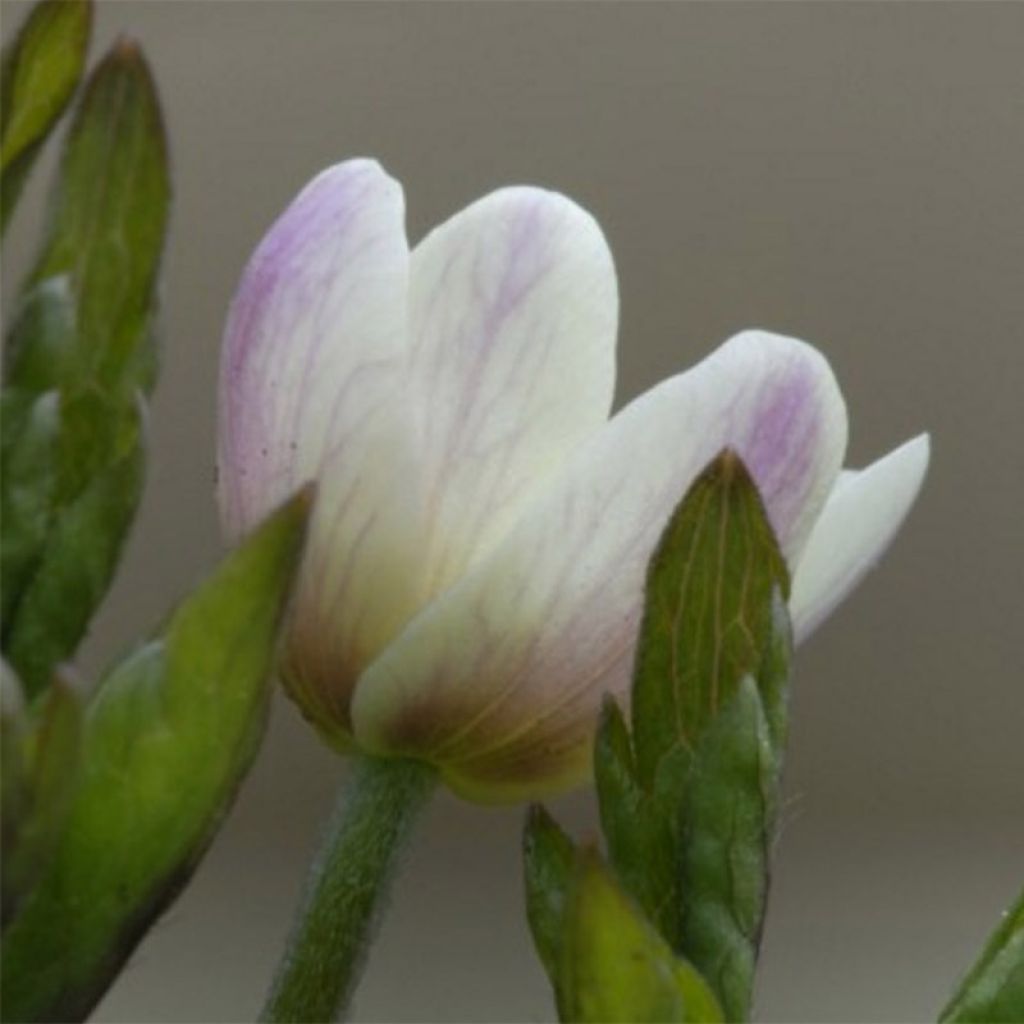

Anemone nemorosa Lucia
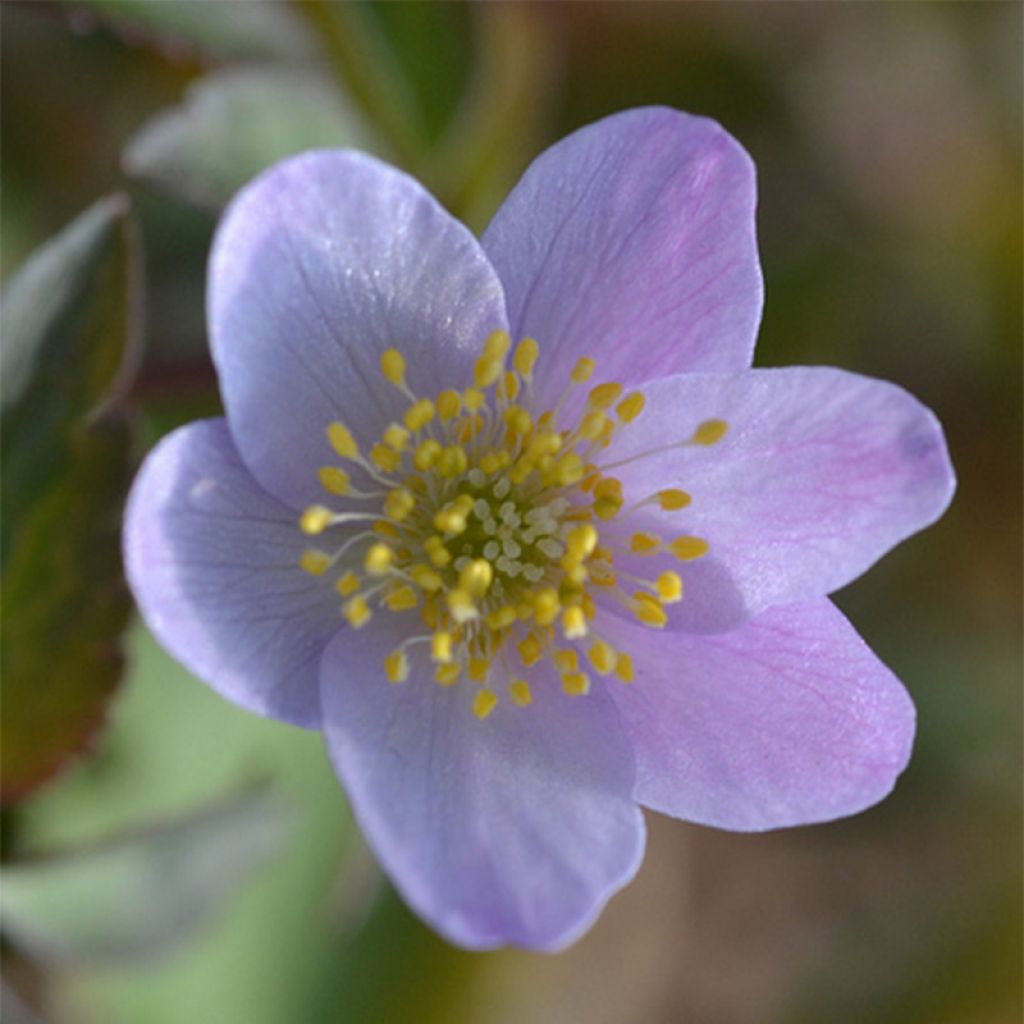

Anemone nemorosa Lucia
Anemone nemorosa Lucia
Anemone nemorosa Lucia
Wood Anemone
Received 2 rootstocks on 9th March as a birthday gift. I'm not very optimistic about their survival; the rootstocks are very dry and it's not the right planting season. Your website states that they should be planted in autumn. In March, the wood anemone is ready to bloom. The other plants in the package are all beautiful. A big disappointment for this gift.
Marie-Claire, 09/03/2022
This plant carries a 6 months recovery warranty
More information
We guarantee the quality of our plants for a full growing cycle, and will replace at our expense any plant that fails to recover under normal climatic and planting conditions.
From €5.90 for pickup delivery and €6.90 for home delivery
Express home delivery from €8.90.
Does this plant fit my garden?
Set up your Plantfit profile →
Description
Anemone nemorosa 'Lucia', also known as Wood Anemone, is a charming variety. This small bulbous plant of the undergrowth has a long spring flowering period, with small white flowers that turn pink over time, while its palmate foliage unfolds with a coppery colour. A perennial plant that thrives in shaded areas and humus-rich soil, it may be slow to establish, but eventually forms tangled rhizome mats that no adventive plant can infiltrate.
Anemone nemorosa 'Lucia', native to Spain (discovered in the mountainous massifs of Picos de Europa, Puerto de San Glorio), belongs to the family of Ranunculaceae. It is a cultivar derived from the Wood Anemone, which is found throughout Europe, western Asia, and northern America. This small plant forms a cushion 15 cm (6in) tall and spreads over 20 cm (8in) or more. It produces unbranched vertical stems that bear three well-cut whorled bracts and a single flower in the centre, measuring 3 cm (1in) in diameter. The flower has several oval tepals (sepals resembling petals) that start off white and gradually turn pink, eventually becoming more or less purplish pink. The throat is adorned with numerous yellow stamens. The flower opens to the light and follows the direction of the sun. It closes in the evening or in case of rain, avoiding damage from water by gracefully leaning to the side. All the flowers are oriented in the same way, creating a particularly harmonious carpet. The rhizome of Anemone sylvie 'Lucia' is brown, fleshy, and brittle, growing only 3 centimetres (1 inch) per year. It runs just below the surface of the soil and produces numerous leaves with three dissected leaflets, strongly tinged with copper and becoming greener as they grow, with a slight velvety texture. The flower does not occupy the same position year after year; it moves following its rhizome.
Anemone nemorosa Lucia is ideal as groundcover, especially in shady areas with moist soil. It can be used at the base of hedges, bushes, and deciduous trees. Pair it with botanical daffodils, forget-me-nots, and blue, violet, white, or pink Anemone blanda, which will succeed it in flowering and require the same growing conditions. In nature, Wood Anemone grows and blooms in spring, when trees still have no foliage. It completes its vegetative cycle in summer when its leaves disappear, entering a period of dormancy. This is the best time to plant it under a tree or at the base of hedges. It is not affected by competition from the roots of trees and bushes.
In temperate European zones, in forests where it occurs naturally, it would (along with lily of the valley) be a good bio-indicator of the age and naturalness of the forest. Anemone nemorosa and its cultivars are plants used in phytotherapy and aromatherapy.
Report an error about the product description
Anemone nemorosa Lucia in pictures
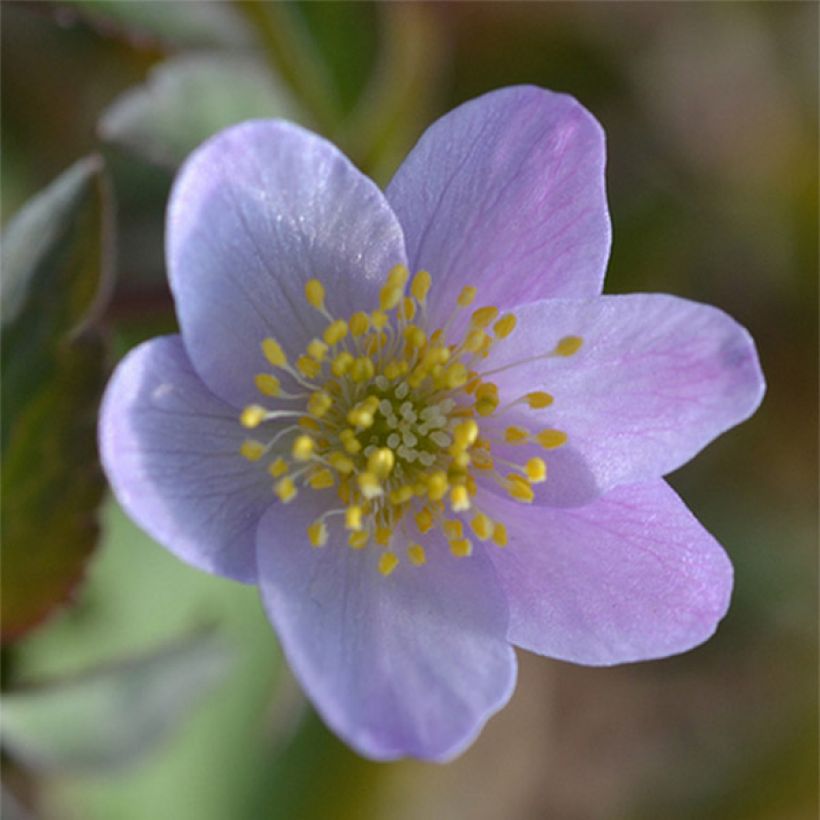

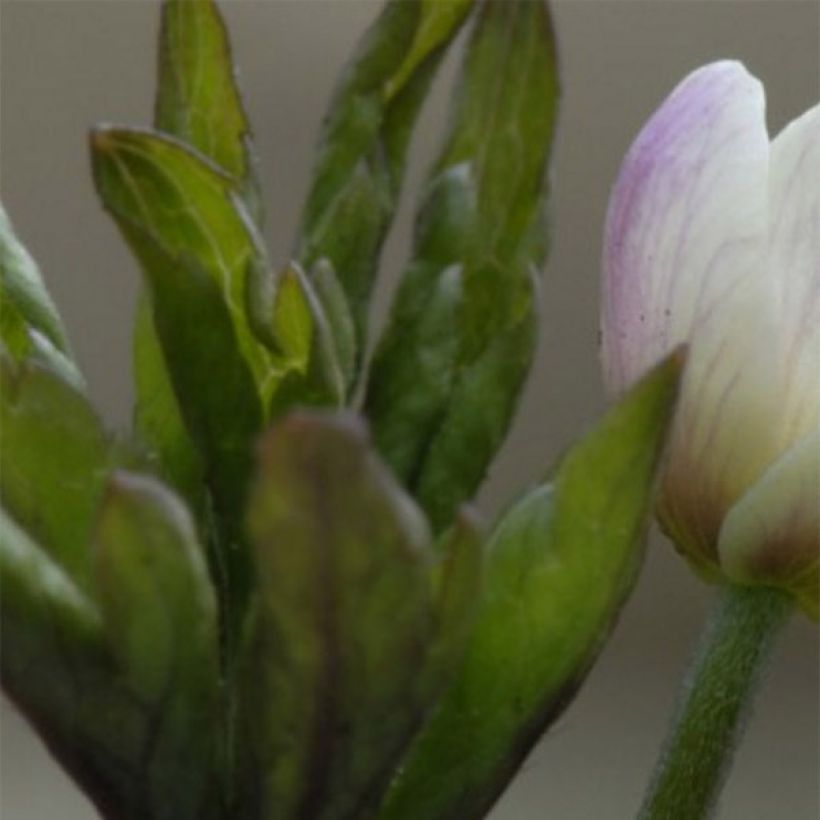



Plant habit
Flowering
Foliage
Botanical data
Anemone
nemorosa
Lucia
Ranunculaceae
Wood Anemone
Cultivar or hybrid
Other Anemone
Planting and care
Wood Anemone 'Lucia' should be planted in autumn, with a spacing of 30 cm (12in), in a humus-rich, moist, well-drained soil in a shaded location. Mix peat soil with your garden soil if it is too chalky. In summer, it goes into dormancy and disappears underground. Mulch the soil with dead leaves to protect the stump in winter. Divide the clumps every 4 years in spring. It is susceptible to leaf eelworms and occasionally to anemone smut. Additionally, it can be affected by black spot disease and powdery mildew, as well as caterpillars and slugs.
Planting period
Intended location
Care
-
, onOrder confirmed
Reply from on Promesse de fleurs
Small Spring Bulbs
Haven't found what you were looking for?
Hardiness is the lowest winter temperature a plant can endure without suffering serious damage or even dying. However, hardiness is affected by location (a sheltered area, such as a patio), protection (winter cover) and soil type (hardiness is improved by well-drained soil).

Photo Sharing Terms & Conditions
In order to encourage gardeners to interact and share their experiences, Promesse de fleurs offers various media enabling content to be uploaded onto its Site - in particular via the ‘Photo sharing’ module.
The User agrees to refrain from:
- Posting any content that is illegal, prejudicial, insulting, racist, inciteful to hatred, revisionist, contrary to public decency, that infringes on privacy or on the privacy rights of third parties, in particular the publicity rights of persons and goods, intellectual property rights, or the right to privacy.
- Submitting content on behalf of a third party;
- Impersonate the identity of a third party and/or publish any personal information about a third party;
In general, the User undertakes to refrain from any unethical behaviour.
All Content (in particular text, comments, files, images, photos, videos, creative works, etc.), which may be subject to property or intellectual property rights, image or other private rights, shall remain the property of the User, subject to the limited rights granted by the terms of the licence granted by Promesse de fleurs as stated below. Users are at liberty to publish or not to publish such Content on the Site, notably via the ‘Photo Sharing’ facility, and accept that this Content shall be made public and freely accessible, notably on the Internet.
Users further acknowledge, undertake to have ,and guarantee that they hold all necessary rights and permissions to publish such material on the Site, in particular with regard to the legislation in force pertaining to any privacy, property, intellectual property, image, or contractual rights, or rights of any other nature. By publishing such Content on the Site, Users acknowledge accepting full liability as publishers of the Content within the meaning of the law, and grant Promesse de fleurs, free of charge, an inclusive, worldwide licence for the said Content for the entire duration of its publication, including all reproduction, representation, up/downloading, displaying, performing, transmission, and storage rights.
Users also grant permission for their name to be linked to the Content and accept that this link may not always be made available.
By engaging in posting material, Users consent to their Content becoming automatically accessible on the Internet, in particular on other sites and/or blogs and/or web pages of the Promesse de fleurs site, including in particular social pages and the Promesse de fleurs catalogue.
Users may secure the removal of entrusted content free of charge by issuing a simple request via our contact form.
The flowering period indicated on our website applies to countries and regions located in USDA zone 8 (France, the United Kingdom, Ireland, the Netherlands, etc.)
It will vary according to where you live:
- In zones 9 to 10 (Italy, Spain, Greece, etc.), flowering will occur about 2 to 4 weeks earlier.
- In zones 6 to 7 (Germany, Poland, Slovenia, and lower mountainous regions), flowering will be delayed by 2 to 3 weeks.
- In zone 5 (Central Europe, Scandinavia), blooming will be delayed by 3 to 5 weeks.
In temperate climates, pruning of spring-flowering shrubs (forsythia, spireas, etc.) should be done just after flowering.
Pruning of summer-flowering shrubs (Indian Lilac, Perovskia, etc.) can be done in winter or spring.
In cold regions as well as with frost-sensitive plants, avoid pruning too early when severe frosts may still occur.
The planting period indicated on our website applies to countries and regions located in USDA zone 8 (France, United Kingdom, Ireland, Netherlands).
It will vary according to where you live:
- In Mediterranean zones (Marseille, Madrid, Milan, etc.), autumn and winter are the best planting periods.
- In continental zones (Strasbourg, Munich, Vienna, etc.), delay planting by 2 to 3 weeks in spring and bring it forward by 2 to 4 weeks in autumn.
- In mountainous regions (the Alps, Pyrenees, Carpathians, etc.), it is best to plant in late spring (May-June) or late summer (August-September).
The harvesting period indicated on our website applies to countries and regions in USDA zone 8 (France, England, Ireland, the Netherlands).
In colder areas (Scandinavia, Poland, Austria...) fruit and vegetable harvests are likely to be delayed by 3-4 weeks.
In warmer areas (Italy, Spain, Greece, etc.), harvesting will probably take place earlier, depending on weather conditions.
The sowing periods indicated on our website apply to countries and regions within USDA Zone 8 (France, UK, Ireland, Netherlands).
In colder areas (Scandinavia, Poland, Austria...), delay any outdoor sowing by 3-4 weeks, or sow under glass.
In warmer climes (Italy, Spain, Greece, etc.), bring outdoor sowing forward by a few weeks.

































